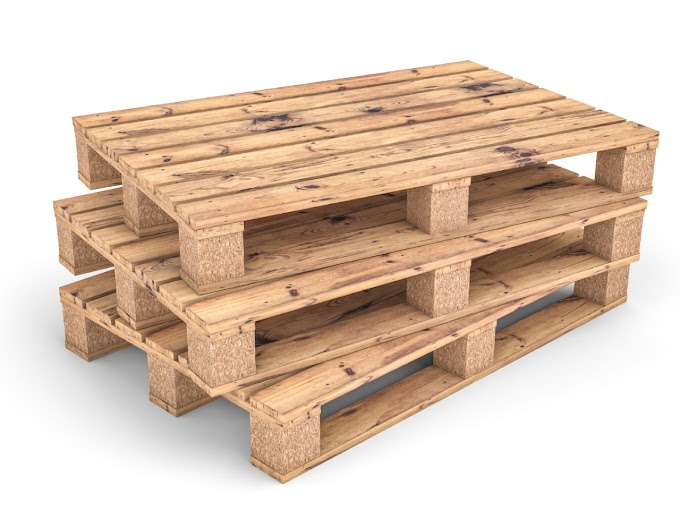In the bustling world of logistics and supply chain management, the humble pallet stands as an unsung hero, facilitating the smooth transition of goods from one place to another. The choice of the right pallet is a decision of paramount importance, one that can significantly influence the efficiency and safety of your operations. In this article, we delve deep into the intricacies of selecting the perfect pallet, weaving through the various factors that demand careful consideration.
Understanding the Pallet Landscape
Before embarking on the journey to select the quintessential pallet, one must first acquaint themselves with the diverse landscape of pallet types and materials. From wooden to plastic, metal, and even paper pallets, the options are myriad. Each material comes with its unique set of characteristics, offering different levels of durability, cost-effectiveness, and environmental impact.
The Genesis of Pallets
The origins of pallets are intertwined with the evolution of modern trade. As commerce burgeoned, the need for efficient transportation and storage solutions became paramount. Enter the pallet, a flat structure designed to support goods in a stable manner, allowing them to be lifted by forklifts, jacks, and other lifting devices. Crafted primarily from wood, though occasionally from plastic, metal, or even paper, pallets have become the backbone of warehouses and distribution centers.
The Anatomy of a Pallet
A pallet's design, though seemingly rudimentary, is a product of meticulous engineering. The top deck boards provide the primary surface for goods to be placed upon. Beneath these are stringer boards, which offer support and determine the pallet's overall strength. Some pallets also feature a bottom deck, providing additional stability. The space between the top and bottom decks, or the absence of a bottom deck altogether, allows for the tines of lifting devices to slide in effortlessly.
Pallets: Beyond Wood
While wooden pallets dominate the scene, the modern era has ushered in a variety of materials. Plastic pallets, for instance, are revered for their durability and resistance to elements. Metal pallets, often crafted from steel or aluminum, are robust and ideal for transporting heavy goods. Paper pallets, though less common, offer an eco-friendly alternative, being both lightweight and recyclable.
The Environmental Impact
In an age where sustainability is paramount, pallets have not escaped scrutiny. Fortunately, the industry has responded with aplomb. Wooden pallets, when retired, can be repurposed into furniture, compost, or even energy. Plastic pallets, too, can be recycled, ensuring they don't end up in landfills. The industry's commitment to reducing its carbon footprint is commendable, with many companies opting for pallet pooling, where pallets are shared, reused, and recycled.
Pallets in Modern Commerce
Today, pallets are more than just transport aids; they are strategic assets. They facilitate the swift movement of goods, reduce handling time, and minimize product damage. In industries where time is of the essence, such as perishable food or pharmaceuticals, pallets ensure products reach their destination in optimal condition. Moreover, with the advent of smart technology, some pallets are now equipped with tracking devices, offering real-time data and ensuring goods are never 'lost in transit'.
Pallets, in their unassuming demeanor, have revolutionized the way we move and store goods. They are a testament to human ingenuity, turning a simple concept into a linchpin of global trade. As we stand on the cusp of a new era, with automation and artificial intelligence reshaping industries, the role of pallets remains unwavering. They are, and will continue to be, the silent workhorses of commerce, bearing the weight of our world's goods with grace and resilience.
Determining Your Specific Needs
The first step in this odyssey is to delineate the specific needs of your operation. Consider the nature of the goods you intend to transport. Are they fragile or robust? What are the weight and dimensions of the products? These questions will guide you in selecting a pallet with the appropriate load capacity and dimensions.
Environmental Considerations
In an era where environmental conservation is a pressing concern, one cannot overlook the environmental implications of their choices. Opt for pallets made from sustainable materials, and consider the recyclability of the pallet at the end of its life cycle. Moreover, ponder upon the carbon footprint of the pallet's production process, aiming to select options that minimize environmental degradation.
Evaluating Suppliers
Once you have a clear understanding of your needs and the available options, the next step is to evaluate potential suppliers. Look for suppliers who have a proven track record of delivering quality products. Consider their reputation in the market, their adherence to quality standards, and their commitment to customer satisfaction.
Cost-Benefit Analysis
In the world of business, every decision comes down to a cost-benefit analysis. While it might be tempting to opt for the cheapest option available, one must consider the long-term implications of their choice. A pallet that is slightly more expensive but offers greater durability and safety might prove to be a more cost-effective choice in the long run.
Conclusion
Choosing the right pallet is not a task to be taken lightly. It demands a careful consideration of various factors, including the nature of your goods, the environmental impact of your choice, and the reliability of your supplier. By taking the time to thoroughly research and evaluate your options, you can make an informed decision that will serve your business well in the long run.
Final Thoughts
As you stand on the cusp of making this critical decision, let this article serve as a beacon of guidance, illuminating the path to making an informed and wise choice. Remember, the right pallets can be a powerful ally in your quest for operational efficiency and sustainability. Choose wisely, and pave the way for a successful and prosperous future.







0 Comments